Interviews
Here are the interviews with leading authorities in a variety of industries and fields that are associated with JEOL.

Interview 13
Future of Basic Research
Yoshinori Ohsumi, Ph.D.
Chairman, Ohsumi Frontier Science Foundation
Winner of the Nobel Prize in Physiology or Medicine
Yoshinori Ohsumi, who was awarded the Nobel Prize in Physiology or Medicine in 2016 for his research into "what others don't do", and JEOL Chairman Gonemon Kurihara. The two spoke on the theme of "Promoting basic science and the role of business".

Interview 12
"What are the molecular structures of "Splendid Gifts from Microorganisms"? Analysis is faster and easier now!
Prof. Toshiaki Sunazuka
Director, Professor
Omura Satoshi Memorial InstituteGraduate School of Infection Control Sciences, Kitasato University
Omura Satoshi Memorial Institute, Kitasato University has continued to discover new compounds every year, taking over the research theme of Dr. Satoshi Omura, a Nobel Prize winner in Physiology or Medicine in 2015. We interviewed Prof. Sunazuka, Director, about his research to find natural products that are produced by microorganisms for evaluation of their biological properties to discover drug lead compounds.
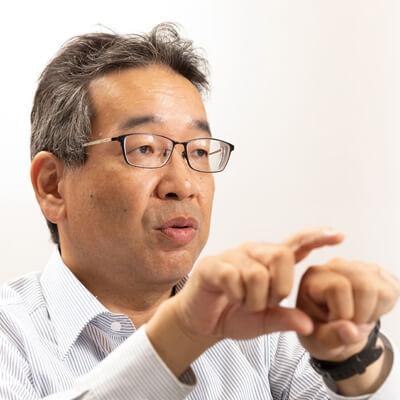
Interview 11
I want to make a polymer visible
Hiroaki Sato: Ph.D.
Deputy Director, Research Institute for Sustainable Chemistry, National Institute of Advanced Industrial Science and Technology (AIST)
Dr. Sato has been closely accompanying the evolution of mass spectrometers for 30 years. By fully utilizing the state-of-the-art mass spectrometers, he has been clarifying what is happening in the world of polymers. The evaluation methods with his knowledge are about to give new strength to the chemical industry.
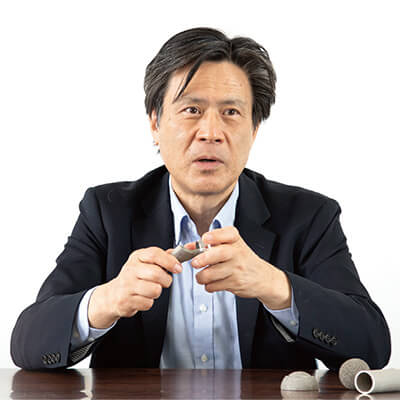
Interview 10
Revolution in material development by additive manufacturing using electron beam melting
Akihiko Chiba
Professor, Deformation Processing,Institute of Materials Research,Tohoku University
Additive manufacturing technology that uses AM Machine to produce metal parts. It is expected to revolutionize parts for aircraft and rockets, which require strength and reliability. We asked Professor Akihiko Chiba of the Institute for Materials Research at Tohoku University, who is leading the way in metal additive manufacturing technology in Japan, about the potential of this technology.
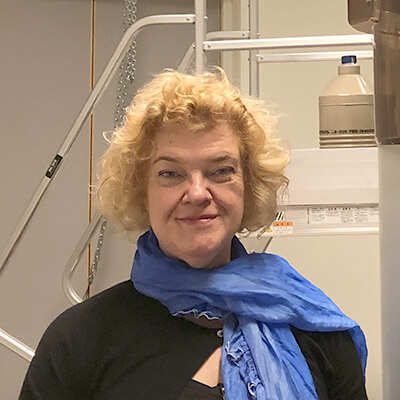
Interview 09
Super High Precision Imaging, High Spatial and Energy Resolution Spectroscopy and In situ Electron Microscopy for Materials for Tomorrow and a Sustainable Future
Eva Olsson
Professor, Department of Physics, Chalmers University of Technology Chair of Research Division, Member of the Swedish Royal Academy of Sciences, General Secretary of International Federation of Societies for Microscopy (IFSM)
The research division of Eva Olsson focuses on understanding the correlation between local structure and properties of hard and soft matter and also their correlation to fabrication parameters.
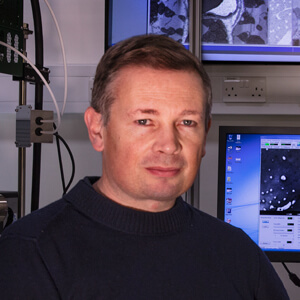
Interview 08
Biological Electron Microscopy; Seeking Evermore Significant Data for New Discoveries in Biological Research
Roland Fleck
Professor at King's College London, United Kingdom
Understanding cellular and molecular structures is a principal foundation of biomedical research. Professor Roland Fleck, who is the Director of CUI (Centre for Ultrastructural Imaging) at King's College London, dedicates himself to high resolution imaging of their structures using JEOL electron microscopes. He uses both scanning and transmission electron microscopes, e.g., JSM-7800FPRIME, JEM-F200 well as other JEOL instruments in partnership with JEOL. The centre, which is a JEOL Centre for Advanced Technology (JCAT) specializes in both room temperature and cryo electron microscopy techniques.
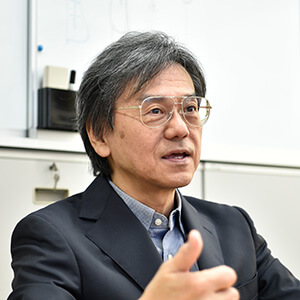
Interview 07
Cryo-electron microscopy unveils the mysteries of life by investigating various molecular structures in the "deep freeze".
Keiichi Namba
Professor at the Graduate School of Frontier Biosciences, Osaka University.
Proteins constitute all living organisms and are responsible for a plethora of functions, such as immunity, metabolism, cerebral function and motility. Professor Keiichi Namba, who leads the Protonic NanoMachine Group of the Graduate School of Frontier Biosciences in Osaka University is interested in the remarkable mechanisms underlying these functions and is actively seeking to unveil their secrets by studying the three-dimensional (3D) structures of biological molecules.
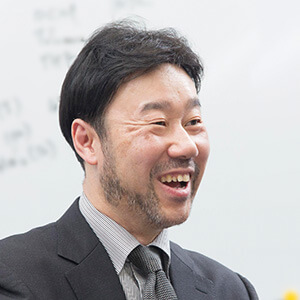
Interview 06
In Pursuit of Environmentally Friendly Chemistry: Innovations in Organic Synthesis Supported by Analytical Instruments
Shū Kobayashi
Professor, School of Science, The University of Tokyo
Advances in chemistry have led to tremendous benefits to society and have impacted nearly every aspect of our lives, including healthcare, energy, food production, and new materials. Although society has been enriched by this progress, the production of chemical substances has also created serious environmental issues, such as pollution and environmental contamination. At the University of Tokyo, Professor Shū Kobayashi is leading the way to develop environmentally friendly or "Green" chemistry.
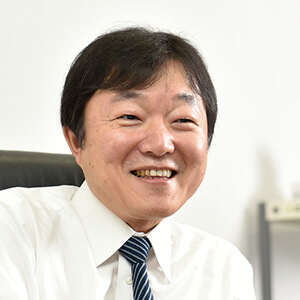
Interview 05
The Challenge of Manipulating Light-Electron Beam Lithography System Draws the Future
Professor Susumu Noda
Graduate School of Engineering and Faculty of Engineering, Kyoto University
Optical chips, semiconductor laser innovations, thermal emission control and high-efficiency solar cells, etc... Photonic crystals are without doubt innovative materials that catch the future. Professor Susumu Noda of Kyoto University has led studies in this field since the very beginning and continues to run toward an ambitious dream.
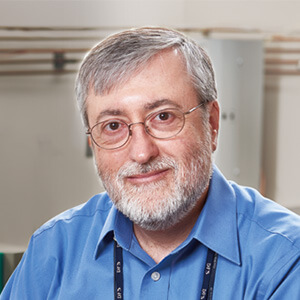
Interview 04
Versatile and powerful tool for forensic drug screening
Robert Steiner, M.S
Principal Forensic Scientist and Instrument Specialist, Virginia Department of Forensic Science
Innovative AccuTOF-DART® mass spectrometer speeds up and simplifies identification and elucidation of unknown drugs
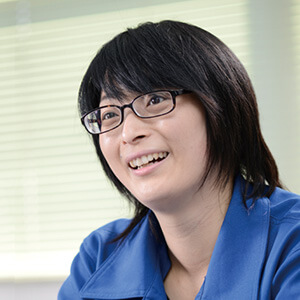
Interview 03
The Future of Material Engineering Revealed by Solid-state NMR, the Guardian Angel of Manufacturing
Yoko Sakiyama Senior Researcher
2nd Material Science Laboratory Material Science Laboratories
Toray Research Center, Inc.
LED, fuel cells, diamond-like carbon...
Japan continues to produce outstanding products using world-leadingmanufacturing technology. The application technology of the analytic chemists of TRC with their JEOL solid state NMR are opening new horizons.
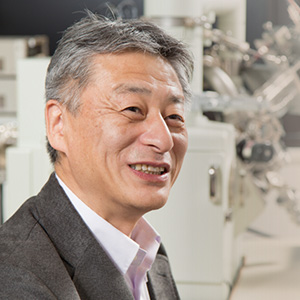
Interview 02
A Synchrotron on your Desk? Seeing everything with an electron microscope
Professor Masami Terauchi
Institute of Multidisciplinary Research for Advanced Materials (IMRAM), Tohoku University
Laboratory of Electron Crystallography and Spectroscopy
What is this thing in front of us? To make an accurate identification, we must know the chemical bonding state. What if we could see everything with the electron microscope?
The development of an instrument that started with the idea of one microscopist is causing a revolution in manufacturing.
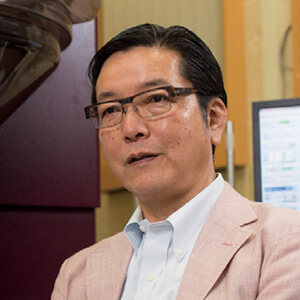
Interview 01
Super High Resolution Electron Microscopes Stimulate Progress in Materials Science
Professor Yuichi Ikuhara
Institute of Engineering Innovation, School of Engineering, the University of Tokyo
Shifting from production based on experience and intuition to rational manufacturing based on theory and evidence.
JEOL Super High Resolution Electron Microscopes support great strides in materials science.
